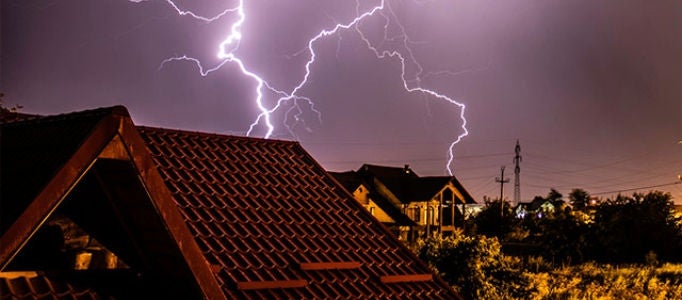A combination of government rebates & incentives, an increase in environmental concerns, and the increasing affordability of EVs means that demand for station installations will continue to increase. Have yet to see the demand? Make sure the property is EV-Ready, making it easy and less costly to retrofit as you have already installed proper conduit and electrical wiring. Install the brand you can trust, backed by a dedicated support and quality team.
Quick Links: Back To Home | Drivers | Property/Business Owners/Fleets | Distributors | Builders | Car Dealerships
The Future is Electric… Are You Prepared?


Improve Your Installations - Now and in the Future!
- Electric Vehicle Charging Station Foundation
- Ease Installations
- Foundation eliminates the need to wait for concrete to cure before installing the EV charger, expediting project timelines
- Easy maintenance, repairs, and replacements due to the foundations accessible top plate
- Create EV-Ready Infrastructure
- For locations that have EV-ready or EV-capable building codes and requirements but are not presently ready for EV charging solutions, the foundation acts as a preventive measure against future infrastructure disruptions
- Contractors simply install the foundation and transition when desired by mounting an EV charging pedestal
The brand that goes beyond the charger...
At Leviton, we don’t just provide EV chargers, we provide the total EV electrical infrastructure
Frequently Asked Questions
Level 1 charging stations are typically provided with an EV purchase and use a J1772 connector. They are rated 120 Volts and can be plugged into a standard NEMA 5-15 household outlet. Level 1 provides the slowest charging time, averaging 5 miles of range per hour of charging.
Level 2 charging stations are the most common type of charging stations in the US and North America, using a J1772 connector. As of 2022, over 85% of public EVSE ports in the US were Level 2. They are rated 240 Volts and charge faster than Level 1, averaging 25 miles of range per 1 hour of charging. Level 2 charging stations are common for homeowners, workplace, and other commercial/public locations.
DC charging stations, often referred to as "Level 3 Charging Stations", use direct-current to provide quick charging. They use CCS connectors (also known as J1772 combo) and CHAdeMO connectors. They are typically rated 208/480 Volts and charge faster than Level 2, averaging 100-200+ miles of range per 30 minutes of charging (or 200-400+ miles of range per 1 hour of charging) and are common at rest stops, gas stations, shopping malls, and other public locations.
| Level | AC or DC | Miles of Range Per 1 Hour of Charging* | Connector Types |
|---|---|---|---|
| Level 1 | AC | 5 | J1772 |
| Level 2 | AC | 25 | J1772 |
| DC (often referred to as Level 3) | DC | 200-400+ | CCS1, CHAdeMO |
*Charging time may vary depending on the vehicle and battery capacity
- AC Charging – AC power is put into the vehicle from a charging station, and then the converter inside the vehicle converts it to DC power.
- DC Charging – the charging station, with a built in convertor, converts AC to DC, and then the vehicle receives DC power directly from the charger, allowing for faster charging. DC Charging is often referred to as Level 3 Charging
Yes! There are many Federal and State rebates and incentives being offered to promote the widespread adoption of electric and other alternative fuel vehicles, including tax breaks, reduced utility rates and more. Whether you are an EV driver or a business owner, see which apply to you.
The following list includes important safety features you should think about prior to selecting a Level 2 EV Charging Station:
- Pick an EV Charging Station with the latest industry standards including meeting Underwriter’s Laboratory and National Electric Code Requirements
- Make sure the manufacturer provides additional safety features such as ground monitoring circuitry and over temperature protection
Leviton offers licensed electrical contractors a training to become a Certified Installer of our public charging stations. This detailed, self-paced training covers all you need to know to successfully install Leviton EVSE, including site readiness, mounting hardware details, electrical connections, station assembly, and installation validation.
Depending on your location, there may be EV-Ready Building Codes in place. These codes require the building’s infrastructure to be designed ready to install EVSE, including electrical wiring, panels and conduit. Being EV-Ready can save tons of time and money rather than retrofitting.
Depending on your application and location, there will be other electrical devices to complete the total EV infrastructure. This includes Leviton surge protective devices, submetering solutions, safety disconnect switches, and more.
One way to do this is by having the contractor/installer use an EV tester. These devices take the necessary precautions to ensure your Leviton EV Series charger operates reliably and provides a seamless charging experience. Through the simulation of a vehicle connection, they enable professionals to assess the charger’s ability to connect to Wi-Fi networks, maintain a reliable connection, and communicate with the external systems or mobile applications.
Resources
How can we help you?
Speak to one of our EV Charging Specialists.






